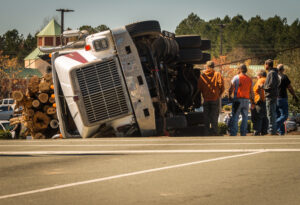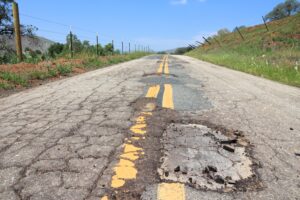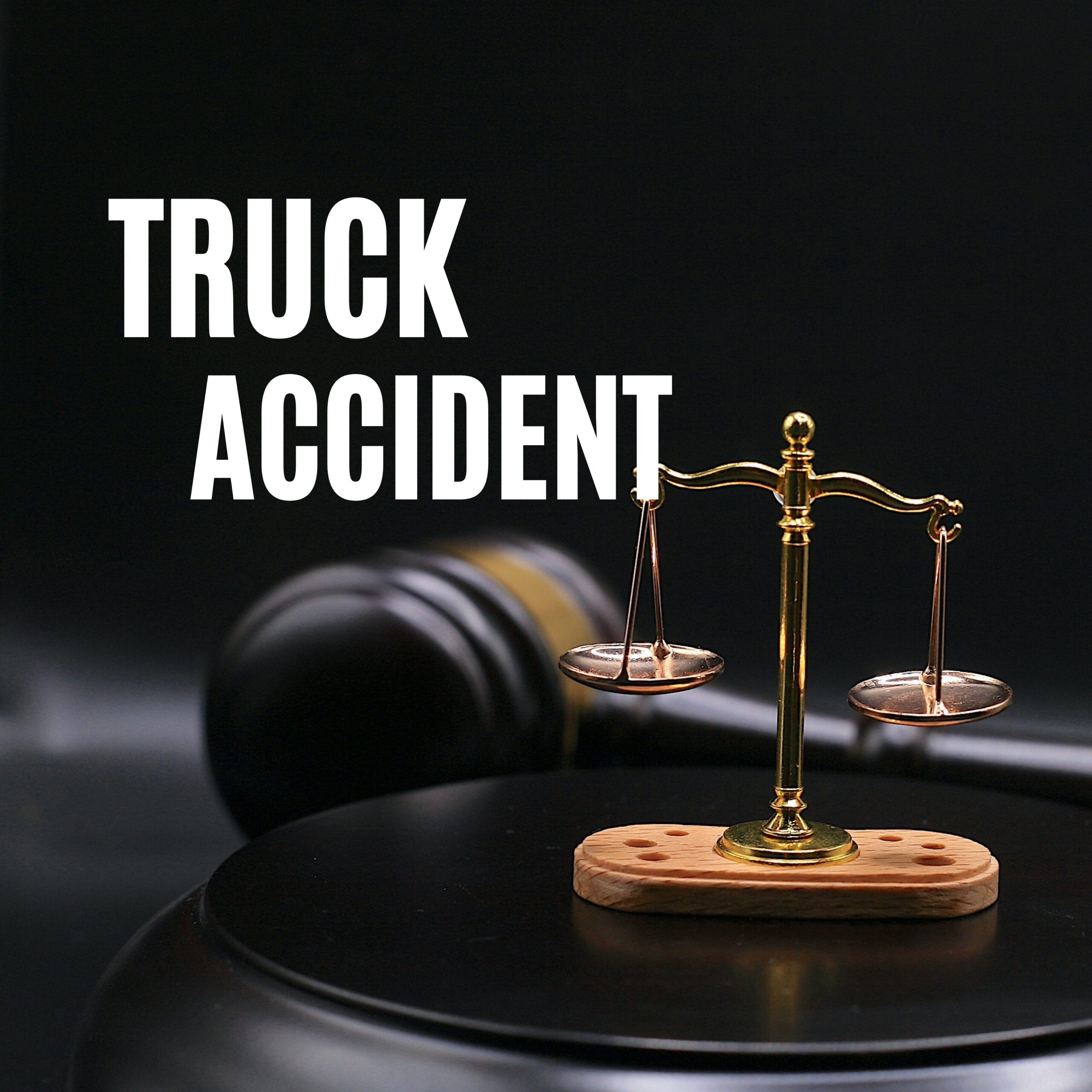Coal and logging trucks cause West Virginia truck accidents, primarily because both industries thrive in the state. Coal and logging truck accidents can be complex for various reasons, including multiple parties of liability, severity of injuries, complicated evidence, and length of investigation into trucking companies and injury claims.
If you’ve suffered an injury in a coal or logging truck accident in West Virginia, schedule a free consultation with a local Weston truck accident lawyer. You’ll want to know your legal rights to obtaining financial compensation for your injuries.
Why Do Coal and Logging Trucks Cause West Virginia Truck Accidents?
A significant factor in why coal and logging trucks cause West Virginia truck accidents is because the state is the second in the nation for coal production, accounting for 14 percent of total U.S. production. Naturally, areas with substantial coal production will have more coal trucks on the road, causing accidents.
Additionally, with over 78 percent of the state covered by forests, West Virginia has a booming lumber industry, generating over $3.2 billion annually. The state’s logging industry ensures more trucks on the road responsible for causing truck accidents.
What Are the Common Causes of Coal and Logging Truck Accidents in West Virginia?
Coal and logging trucks cause West Virginia truck accidents for several reasons, including driver error, trucking company negligence, improper cargo loading, using older trucks, West Virginian terrain, and poor weather and road conditions.
Truck Driver Error

Unsurprisingly, cell phone use is a significant driver distraction —responsible for causing coal and logging truck accidents in West Virginia. From talking to texting, scrolling, or posting on social media, using a cell phone while driving requires eyes off the road, hands off the wheel, and mind somewhere besides driving, all indicators of distracted driving. Other driver errors that cause collisions include:
- Aggressive driving (speeding, weaving in and out of traffic, failure to signal, tailgating)
- Eating and drinking or smoking behind the wheel
- Adjusting GPS, climate, and stereo controls
- Drunk driving
- Driving while under the influence of illicit drugs
- Driving while impaired by prescription or over-the-counter medications
- Driving while fatigued or drowsy driving
- Losing track of or forgetting to check blind spots
- Ignoring driving laws and road signage
- Road rage
Like every other driver on the road, truck drivers must follow traffic signs and laws. However, truckers must follow additional regulations and require special licensing to operate a coal or logging truck accident. When their negligence causes accidents, injury victims may be entitled to file for financial compensation.
Truck Company Negligence
Truck driving companies may also be liable for driver errors, such as impaired and intoxicated driving, especially if they knew there was a history of substance abuse or DUI. Additionally, there are several ways a truck company’s negligence contributes to an accident, such as:
- Negligent hiring practices —including hiring truckers with a history of driving violations, substance abuse, or lacking proper licenses to operate a coal or logging truck.
- Failing to perform random drug tests —the Federal Motor Carrier Safety Administration (FMCSA) mandates trucking companies to perform random drug tests on drivers throughout the year.
- Failure to properly inspect and maintain trucks —trucking companies are responsible for regularly inspecting and maintaining coal and logging trucks to prevent mechanical and other equipment failures, such as faulty brakes or steering.
- Allowing FMCSA violations —Trucking companies that are aware their drivers are violating FMCSA regulations or even encourage the violations are negligent and possibly liable in a coal or logging truck accident claim.
- Ignoring Hours of Service (HOS) regulations —Truck drivers operate under FMCSA HOS regulations. These regulations limit the number of hours a trucker can drive and break times and frequency. If the trucking company advocated for or allowed a driver to violate the HOS, it may be liable.
Trucking companies must keep coal and logging trucks in West Virginia adequately maintained and safe. If you are injured due to truck driving company negligence or lost a loved one to wrongful death, consult a West Virginia truck accident lawyer to evaluate your case.
Improper Cargo Loading
Cargo loading companies and cargo loaders cause coal and logging truck accidents in West Virginia and may be liable in your commercial truck accident claim. For example, if a cargo loading company or cargo loader violated the FMCSA’s cargo securement rules.
Older Coal and Logging Trucks
Many coal and logging trucks in West Virginia are older, which can lead to accidents. Older trucks are more likely to cause a collision because they are more inclined to experience mechanical failures, brake defects, wear and tear, and lack modern safety features, like antilock braking systems and electronic stability control.
West Virginia Terrain
West Virginia’s beautiful mountain terrain has curving and winding roads, steep inclines, and narrow streets. The intricate terrain can make maneuvering coal and logging trucks more challenging. Additionally, it can contribute to heavy or overloaded cargo loads to shift and cause collisions.
Poor Weather and Road Conditions
Nasty weather and poor road conditions are causes of coal and logging truck West Virginia truck accidents. Typical weather and road issues that cause commercial truck collisions are as follows:
- Reduced visibility from conditions such as fog, heavy snow, freezing rain, thunderstorms, heavy rains, sun glare, and thick mist
- Slippery roadways, including rain, snow, sleet, ice, black ice, and standing water
- High winds can cause steering difficulties and lane weaving
- Shoulder drops
- Broken or missing guardrails
- Poorly designed roads, including narrow lanes
- Faded markings
- Inadequate or missing road signage
- Malfunctioning traffic lights
- Inadequate lighting
- Highway ruts
- Debris in the road
If poor road conditions are found to be the cause of your coal and logging West Virginia truck accident, municipalities may be liable for compensating you for financial losses and non-economic damages incurred from the crash. Your attorney will investigate all possible liable parties.
How Can a Truck Accident Lawyer Help After a Coal and Logging Truck Accident in West Virginia?
A West Virginia truck accident attorney can benefit you after a coal and logging truck accident by offering contingency arrangements, representing your legal rights and interests, investigating your claim, comprehensive case valuation of damages, and negotiating financial settlements.
Offer Contingency Arrangements
Most coal and logging truck accident attorneys work for contingency. Contingency arrangements allow lawyers to offer their legal services with no initial or upfront expenses to the client. Instead, they will take a pre-disclosed percentage of your final settlement —only if they win your case.
Represent Your Legal Rights and Interests
One of the biggest benefits of retaining an attorney is knowing that you have an experienced professional representing your legal rights and interests. From protecting you from insurance companies and their shameful tactics to representing you in court if your claim requires filing a lawsuit, they will represent your rights to the fullest.
Investigate Your Coal and Logging Truck Accident
Investigating the circumstances of your coal and logging West Virginia truck accident is necessary to establish liability and prove negligence to liable insurers. Your attorney’s investigation may include:

- Gathering and preserving evidence —police reports, witness statements, photos of injuries and the accident scene, video of the accident scene, dash cam footage, medical bills, medical records, and truck evidence, such as electronic logging devices (ELDs) and event data recorders (EDRs).
- Working with accident reconstruction specialists —to recreate the circumstances of your accident with computer simulations and 3D models that demonstrate precise moments or causes of liability.
- Employing the help of experts —your attorney has a network of experts that help quantify damages and provide testimony that proves negligence and injury. These experts include medical, economic, vocational, occupational, and more.
Due to the extra evidence involved in truck accident cases and the common issue of multiple liable parties, these cases can be challenging and take time to investigate. Having an experienced truck accident lawyer on your side may mean the difference between getting fairly compensated or having your claim denied by liable insurers.
Offer Comprehensive Case Valuation of Damages
An experienced truck accident attorney will offer a comprehensive case valuation of all damages associated with your collision. These will include all economic and non-economic losses.
Most coal and logging truck accidents do not seek punitive damages, which are only available if your case goes to court and there is a need to punish the defendant for an egregious act.
Negotiate Substantial Financial Settlements
It’s common knowledge that insurance companies start by sending a low offer, especially to unrepresented injury victims. They know that most unrepresented accident victims will not negotiate for a fair settlement for fear of not receiving anything for their losses.
However, having an experienced attorney attached to your claim forces them to take you seriously. They understand that truck accident lawyers do this day in and day out and will demand what is rightfully yours.
What Compensation Can I Expect After a Coal and Logging Truck Accident in West Virginia?
There are countless types of losses factored into maximizing your settlement. Your attorney will consider all viable damages relevant to your coal and logging truck accident claim, including medical and rehabilitation costs, disability expenses, income losses, vehicle and property damages, non-economic losses, and wrongful death damages.
Healthcare Expenses
Injury victims should never have to pay for their healthcare expenses following a coal and logging truck accident. Common medical and rehabilitation bills your lawyer will seek to recover include:
- Ambulance and emergency room care
- Surgeries and post-op care
- Primary and follow-up care
- Hospitalizations
- Medical equipment and devices
- Mental health services
- Physical therapy
- Chiropractic care
- Occupational and vocational therapy services
- Audiologist services
- In-home nursing
- Future medical and rehabilitation expenses
Medical and rehabilitation costs incurred from your truck accident are economic losses verifiable by billing statements and receipts. Keep copies for yourself and ensure your attorney has copies as well.
Long-Term or Permanent Disability Care Costs
Between making the necessary in-home modifications and transportation modifications and replacement, long-term disability costs can add up quickly. Examples of long-term or permanent disability-related expenses are as follows:
- Wheelchair accessible vehicles
- Steering devices
- Hand controls to control brakes and acceleration
- Wheelchair ramps and chair lifts
- Stepless showers
- Raised toilet seats
- Levers and handrails
- Lowered countertops, vanities, and sinks
- Widened door frames
Long-term and permanent disability costs are economic damages that your coal and logging truck accident lawyer will prove by their paper trail. Keep copies of all invoices and bills associated with these expenses.
Income Losses
Income losses account for all wage, salary, commission, tip, bonus, healthcare, retirement, and pension benefit losses caused by the truck accident. Diminished earning power is another factor considered in relevant cases. Lost income statements from your employer, pay stubs, tax returns, bank statements, and other financial documents prove income losses.
Vehicle-Related and Property Damages
Truck accident victims should never be responsible for paying for vehicle-related and personal property damages from the collision. These expenses may involve:
- Vehicle repairs
- Vehicle replacement
- Temporary transportation (Uber, Lyft, and public transportation)
- Rental cars
- Cell phones and other electronic devices
- Clothing and shoes
- Car seats and boosters
- Mailboxes and fencing
- The building or home property damages
Vehicle-related and property damages are monetary losses with a verifiable paper trail, making them easy to recover in your financial settlement. Keep all documentation of these expenses for you and your lawyer.
Non-Economic Damages
Non-economic damages are commonly known as pain and suffering. These are intangible losses that your attorney will assign a monetary value to in their demand letter to the insurance company. These losses touch on various issues, such as:
- Chronic pain
- Anxiety and depression
- Mental anguish and emotional distress
- Psychological trauma (PTSD)
- Loss of enjoyment of life
- Worsening of existing injuries or medical conditions
- Shortened life expectancy
- Permanent disfigurement and scarring
- Lost sleep
- Substance misuse problems after being prescribed controlled substances
- Anger, fear, and frustration
To prove non-economic losses, document them in a post-accident injury journal. Include dated entries that are detailed reports of pain levels, sleep disturbances, psychological trauma, emotional state, and any anger, fear, or anxiety you experience following the truck accident.
Wrongful Death Losses
Families who lost a loved one in a coal and logging truck accident in West Virginia may have a right to file for wrongful death. Losses typically associated with wrongful death include:

Jeff Robinette, Weston Truck Accident Lawyer
- Final arrangement costs (memorial services and burial)
- Pain and suffering of loved one before their death
- Pain and suffering for the surviving family members
- Loss of consortium (companionship, physical relations, assistance, and support)
- Loss of parental guidance
- Loss of household services
- Final medical costs
- Expected future income (salary, bonuses, tracted promotions, and benefits)
If you lost a loved one or suffered injuries in a coal and logging truck accident, schedule a free consultation with a local attorney. You don’t have to figure this out alone. Let an experienced Weston personal injury attorney handle all of your legal needs so that you can focus on recovery and rest.
Jeffery Robinette was admitted to practice law in 1991 and is licensed in all levels of state and federal trial courts in West Virginia. Mr. Robinette is also licensed in all state and federal appeals courts in West Virginia and the United States Supreme Court. As a National Board Certified Trial Attorney who has handled hundreds of motor vehicle, injury, and construction defect claims and a leading author on insurance claims settlement issues and difficulties in West Virginia, Jeff Robinette is uniquely qualified to represent your best interest.





